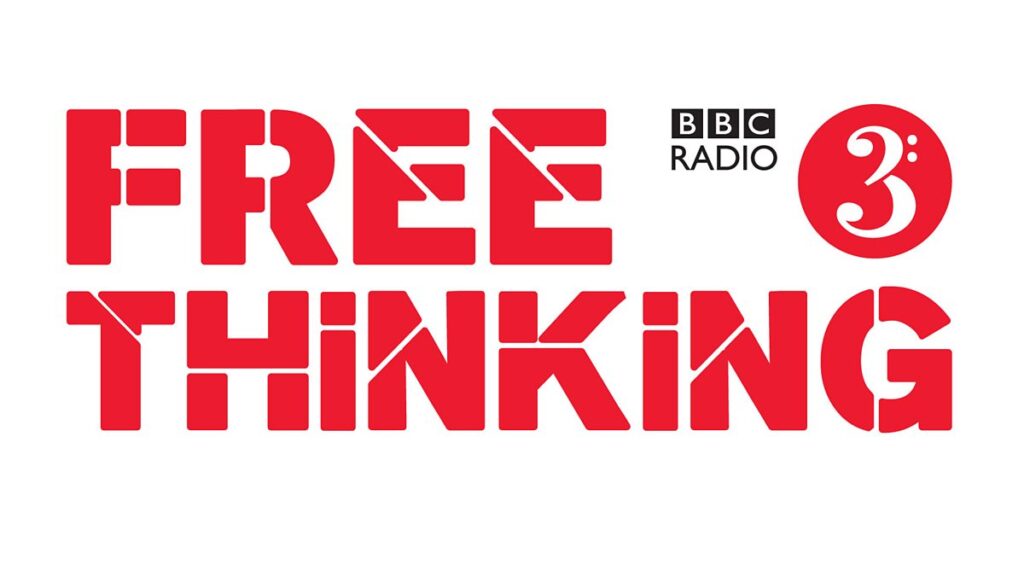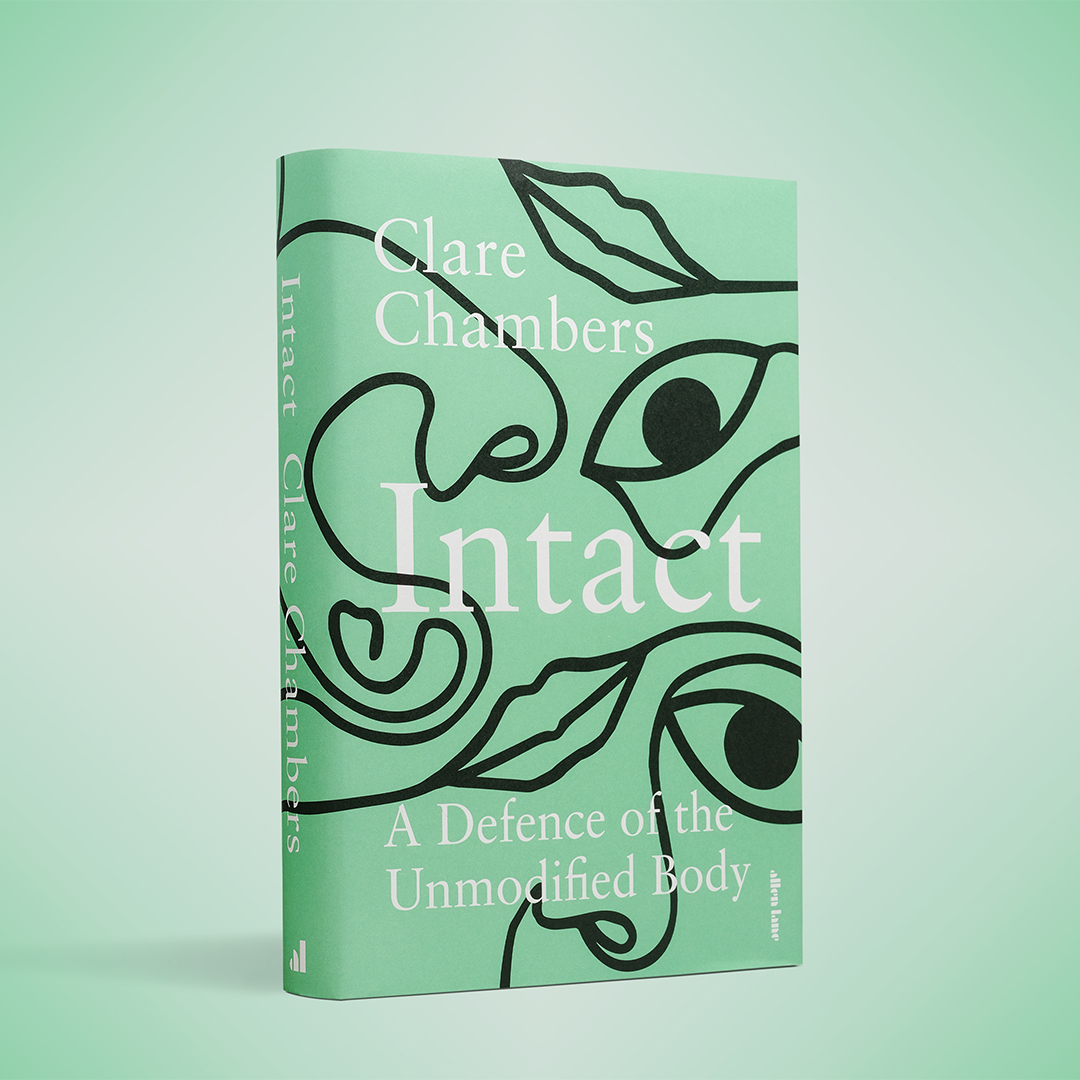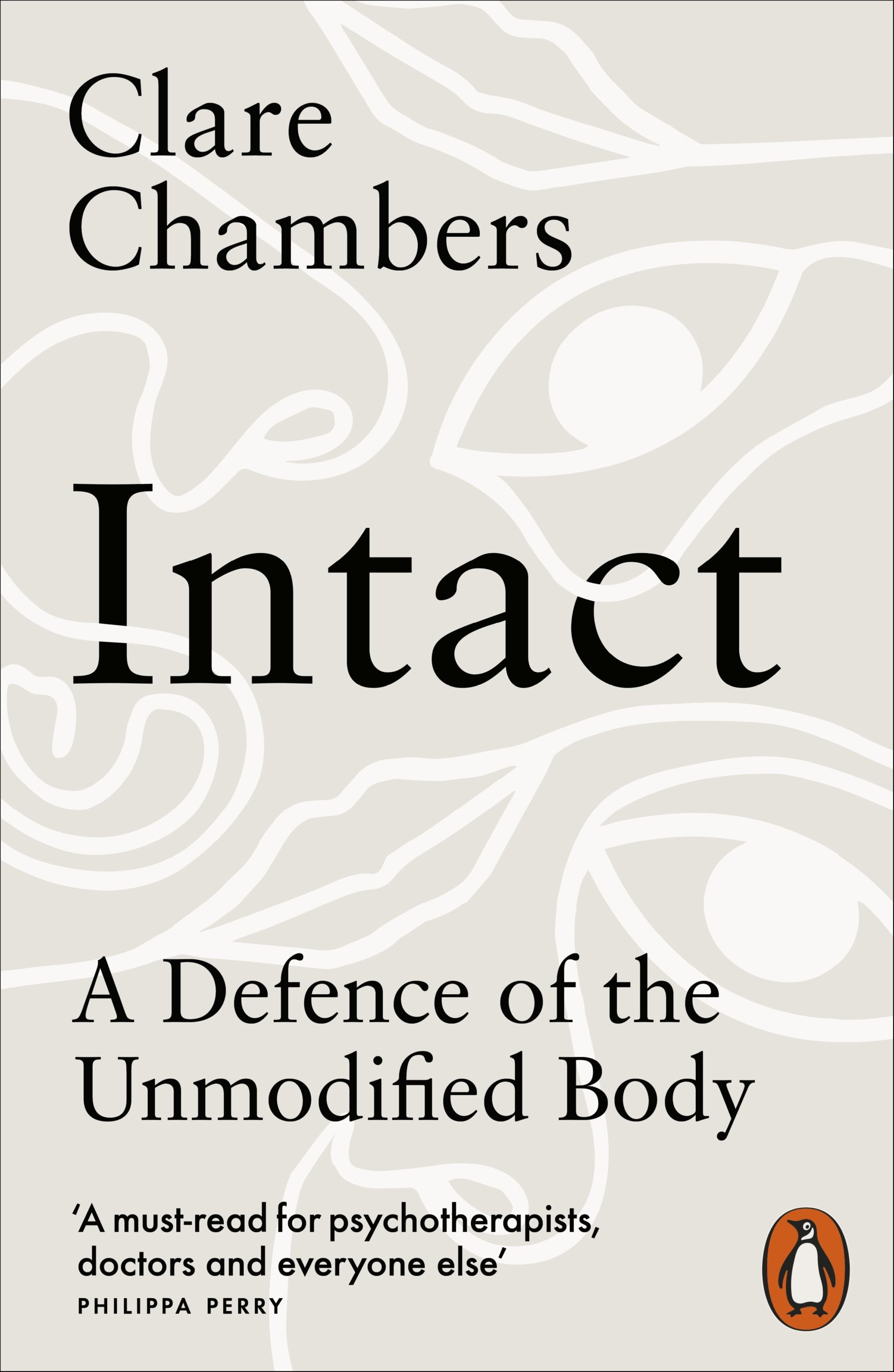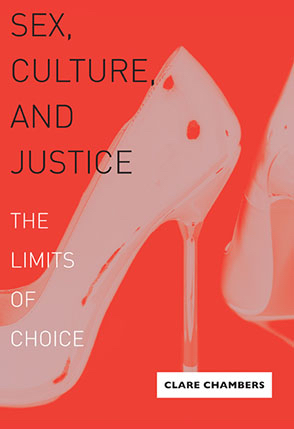the body
-
INTACT at Epoché
Intact Bodies: The Ambivalence of The Natural and The Normal – John C. Brady in Conversation with Clare Chambers was published in the February 2022 issue of Epoché, the monthly magazine for the Philosophy diaspora. You can read the interview here.
Clare Chambers is a professor of political philosophy at the University of Cambridge. Her work deals with contemporary liberalism, social construction, feminism, and social justice. Her latest book, Intact (Allen Lane, 2022), is an analysis of the ways in which the body is a political site where the inequalities of sex, gender, race, disability, age, and class are reinforced. The book argues for the value of the ‘unmodified body’. The unmodified body is not an empirical concept, such a thing would be impossible in actuality (our bodies are undergoing constant revision and intervention). Rather, it is a political tool for resisting forms of coercion and oppression that would have us viewing our bodies as never good enough as they are, and thus requiring their modification, concealment, and conformance in myriad ways. However, the unmodified body cannot be viewed as a simple ‘body positivity’ any more than it can be asserted as an empirical concept. Rather, it is a new notion that cuts orthogonally across various ideals that we have previously held the body to: the natural, the normal, and the sovereign. Because of this orthogonality, these various ideals show themselves, under Chambers’ analysis, to have an ambivalent character. The book functions as both a political and cultural call to arms, and an astute analysis of how our bodies becomes ensnared in oppressive structures that inhibit the road to equality.
-
INTACT at Hay Festival
I’ll be discussing INTACT at the Hay Festival in Hay-on-Wye on 5th June 2022. You can buy tickets here.
-
INTACT at Oxford Literary Festival
I’ll be discussing INTACT at the Oxford Literary Festival on 26th March 2022. You can buy tickets here.
Philosopher Clare Chambers argues that it is time for men, women and children to reclaim their bodies and that an unmodified body is a key principle of social and political equality.
Chambers ranges across a variety of areas from bodybuilding to makeup, male circumcision, breast implants, motherhood and childbirth. She argues that social pressure to modify your body sends a message that you are not good enough, and it reinforces inequalities of sex, gender, race, disability, age, and class.
Chambers is professor of political philosophy and a fellow of Jesus College in Cambridge. She is regarded as one of the most original philosophers in the UK today and is a member of the Nuffield Council on Bioethics. She is author of Against Marriage and specialises in feminism, bioethics, contemporary liberalism, and theories of social justice. -
INTACT on BBC R3 Free Thinking
I’ll be discussing INTACT with Matthew Sweet on BBC Radio 3’s Free Thinking on 24 February 2022. You can listen to the programme here. -
INTACT on BBC R4 Woman’s Hour
I discussed INTACT with Emma Barnett on BBC Radio 4’s Woman’s Hour on 22 Feb 2022.
You can listen to the programme here. Discussion of INTACT starts about 20 minutes in.
-
INTACT in i news
“The rise of ‘shametenance’, the exhausting things we do to hide our natural bodies because we feel inadequate. Why are we so ashamed of the way we look?”
A wonderful article on INTACT by Kasia Delgado of i news, which includes a charming photo of Arnold Schwarzenegger. You can read the article here.
-
Intact: A Defence of the Unmodified Body
In an age of social media and selfies, of pixel-perfect pictures and surgically-enhanced celebrities, the pressure to change our bodies can often seem overwhelming. We are told we should conceal the signs of ageing and get our bodies back after pregnancy. We ought to perfect our complexions, build our biceps, trim our waistlines, cure our disabilities, conceal our quirks. More than ever before, we should contort our physical selves to prejudiced standards of beauty and acceptability.
In this thought-provoking work, acclaimed political philosopher Clare Chambers argues that the unmodified body is a key principle of equality. While defending the right of anyone to change their bodies, she argues that the social pressure to modify sends a powerful message: you are not good enough. The body becomes a site of political importance: a place where inequalities of sex, gender, race, disability, age, and class are reinforced.
Through a clear-sighted analysis of the power dynamics that structure our society, and with examples ranging widely from body-building to breast implants, makeup to male circumcision, Intact stresses that we must break away from the oppressive forces that demand we alter our bodies. Instead, it offers a vision of the human body that is equal without expectation: an unmodified body that is not an image of perfection or a goal to be attained, but a valued end in itself.Available in hardback, paperback, e-book and audiobook here and from all good bookshops.
- all posts on feminism, all posts on liberalism, all posts on the body and beauty, articles, feminism, liberalism, the body
Sex, Money, and Luck in Sport

Clare Chambers, “Sex, Money, and Luck in Sport” published in Journal of Medical Ethics Vol. 46 No. 9 (2020). You can read the paper here.
- all posts on culture and religion, all posts on the body and beauty, articles, multiculturalism and religion, the body
Medically unnecessary genital cutting and the child’s right to bodily integrity: an international expert consensus statement
In American Journal of Bioethics Vol. 19 (2019).
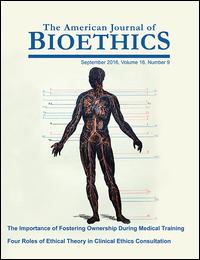
Keeping our focus exclusively on a Western context for the purposes of this article, we argue as follows: Under most conditions, cutting any person’s genitals without their informed consent is a serious violation of their right to bodily integrity. As such, it is morally impermissible unless the person is nonautonomous (incapable of consent) and the cutting is medically necessary.
This paper is authored by the Brussels Collaboration on Bodily Integrity (2019).
This work grew out of informal discussions among participants in the G3 International Experts Meeting on FGM/C in Brussels, Belgium, May 20-22, 2019, along with other scholarly collaborators. We are physicians, ethicists, nurse-midwives, public health professionals, legal scholars, political scientists, anthropologists, psychologists, sociologists, philosophers, and feminists from Africa, Asia, Australasia, Europe, the Middle East, and the Americas with interdisciplinary expertise in child genital cutting practices across a wide range of cultural contexts.
You can read the paper here.
Corresponding author: Brian D. Earp, Associate Director, Yale-Hastings Program in Ethics and Health Policy, Yale University and The Hastings Center, 2 Hillhouse Avenue, New Haven, CT, 06511, USA. E-mail: brian.earp@gmail.co
- all posts on culture and religion, all posts on liberalism, all posts on the body and beauty, liberalism, multiculturalism and religion, the body
Reasonable Disagreement and the Neutralist Dilemma
 Chambers, Clare, “Reasonable Disagreement and the Neutralist Dilemma: Abortion and circumcision in Matthew Kramer’s Liberalism with Excellence” in The American Journal of Jurisprudence (May 2018).
Chambers, Clare, “Reasonable Disagreement and the Neutralist Dilemma: Abortion and circumcision in Matthew Kramer’s Liberalism with Excellence” in The American Journal of Jurisprudence (May 2018).You can read the paper here.
Abstract: This paper starts by investigating the idea of reasonable disagreement. It then considers Matthew Kramer’s argument that there is no neutral solution available to the disagreement over abortion. The paper argues that Kramer’s account has wider application, and identifies a neutralist dilemma. The neutralist dilemma applies when, of two policy options available to the state, one is unreasonable. It follows that the state should enact only the reasonable policy. However, in a neutralist dilemma the fact of reasonable disagreement due to the burdens of judgment means that it is not possible for the state to act at all, whether legislating or not, without deviating from neutrality. The paper develops the concept of the neutralist dilemma and then applies it to another case discussed by Kramer: infant circumcision. The paper argues that the debate over infant circumcision can be framed as a neutralist dilemma, but that the most plausible resolution of the dilemma results in an argument in favor of the legal prohibition of the practice. This is a surprising result, since most liberal states do not restrict circumcision and since prohibition of circumcision might initially appear to be non-neutral or even illiberal; however it is consistent with the tenets of neutralist liberalism.
-
Cosmetic procedures: ethical issues
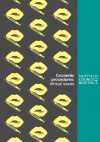 Nuffield Council on Bioethics, 2017
Nuffield Council on Bioethics, 2017This report was written by the Working Party on Cosmetic Procedures, of which I am a member.
There has been increasing demand for invasive cosmetic procedures in the UK, prompting questions about potential risks to users and the lack of regulation and professional standards in this area. This report explores ethical issues in cosmetic procedures with a particular focus on the role and responsibilities of health and scientific professionals and others in responding to demand for invasive non-reconstructive procedures that aim to enhance or normalise appearance. It engages in detailed ethical analysis and makes recommendations affecting all parts of the sector.
You can read the report here.
-
Medicalised Genital Cutting and the Limits of Choice
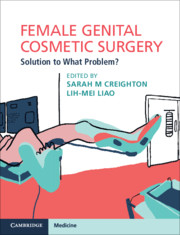 in Female Genital Cosmetic Surgery: Interdisciplinary Analysis and Solution, edited by Sarah Creighton and Lih-Mei Lao (Cambridge University Press, 2019).
in Female Genital Cosmetic Surgery: Interdisciplinary Analysis and Solution, edited by Sarah Creighton and Lih-Mei Lao (Cambridge University Press, 2019).In this chapter I challenge the idea that an appeal to choice exonerates Female Genital Cosmetic Surgery (FGCS). My argument proceeds in five stages. First, I consider the normative role that choice plays in liberal society and philosophy. Second, I note that UK law does not treat choice as adequate for accessing FGCS. Third, I consider the relationship between choice and the concept of normality. Fourth, I consider choice in the context of cosmetic surgery generally, and analyse the distinctive features of FGCS. Fifth, I consider the policy implications of my analysis.
You can find the book here.
-
Judging Women: 25 Years Further Toward a Feminist Theory of the State
Feminist Political Quarterly (Vol. 3 No. 2, 2017).
The title of this paper is “Judging Women”, a phrase that can be understood in three senses. First, when is it acceptable or necessary to make judgements about what women do? Feminists may be wary of subjecting women’s choices and actions to criticism, but the paper argues that such criticism is implied by a feminist perspective on patriarchy, a perspective which is necessarily critical. Second, when can women engage in the act of judging? The paper argues that being judgmental is popularly considered a vice, but only when done by women. Feminism should insist on women’s right to judge. Third, how are we to judge who counts as a woman? The paper investigates the commonalities and contrasts between feminism and trans issues, and discusses the concepts of essentialism and transphobia. The focus throughout is on MacKinnon’s work, which offers profound, sustained, rich analysis of these questions but does not fully resolve them.
You can read the paper here.
- all posts on feminism, all posts on social construction, all posts on the body and beauty, chapters, feminism, social construction, the body
Judith Butler’s Gender Trouble
In The Oxford Handbook of Classics in Contemporary Political Theory, edited by Jacob T. Levy (OUP, forthcoming).
This chapter provides a critical introduction to Judith Butler’s classic work Gender Trouble, including an analysis of the impact it has made on political theory.
The chapter is online first and you can read it here.
- all posts on culture and religion, all posts on feminism, all posts on liberalism, all posts on social construction, all posts on the body and beauty, beauty, feminism, liberalism, multiculturalism and religion, Sex, Culture, and Justice, social construction, the body
Sex, Culture, and Justice: The Limits of Choice
Sex, Culture, and Justice: The Limits of Choice was published in hardback and paperback by Penn State University Press in 2008. An e-book is also available. You can buy all versions here.
Autonomy is fundamental to liberalism. But autonomous individuals often choose to do things that harm themselves or undermine their equality. In particular, women often choose to participate in practices of sexual inequality-cosmetic surgery, gendered patterns of work and childcare, makeup, restrictive clothing, or the sexual subordination required by membership in certain religious groups. In this book, Clare Chambers argues that this predicament poses a fundamental challenge to many existing liberal and multicultural theories that dominate contemporary political philosophy. Chambers argues that a theory of justice cannot ignore the influence of culture and the role it plays in shaping choices. If cultures shape choices, it is problematic to use those choices as the measure of the justice of the culture. Drawing upon feminist critiques of gender inequality and poststructuralist theories of social construction, she argues that we should accept some of the multicultural claims about the importance of culture in shaping our actions and identities, but that we should reach the opposite normative conclusion to that of multiculturalists and many liberals. Rather than using the idea of social construction to justify cultural respect or protection, we should use it to ground a critical stance toward cultural norms. The book presents radical proposals for state action to promote sexual and cultural justice.
Amazon UK: http://www.amazon.co.uk/Sex-Culture-Justice-Limits-ebook/dp/B001UE6M1G/
Amazon US: http://www.amazon.com/Sex-Culture-Justice-Limits-ebook/dp/B001UE6M1G/
Reviews
“[A]n interesting, important, wide-ranging and well-argued book that contains a controversial proposal that will, no doubt, be widely debated.”
—Times Higher Education“[A]n important book. … Very few first-rate analytical thinkers … engage with social theorists: Chambers is a notable exception, and if only for that reason, her contribution should serve as a model for any endeavour of this kind. … Moreover, its strength lies not merely in the author’s mastery of two disparate intellectual traditions, but also in its cogent and provocative defence of a number of proposals.“
—Philosophy“[E]xtremely successful. … Testament to her scholarly rigour, Chambers skilfully avoids alienating either side of the academic divide [between analytical and continental philosophy]; achieving her stated aim, she undermines the foundations upon which such divides are rooted. … This opportune and tightly argued work reveals the extent to which equality and justice cannot be guaranteed by a political liberalism which venerates autonomy to the exclusion of other important values. Setting itself apart from other work in its field, this book forms, albeit on its own terms, part of the solution.”
—Feminist Theory“Chambers’ work makes a highly valuable contribution to contemporary philosophical debates. … Chambers’ work represents a great advance in attempting to forge a path between two positions which are so often considered to be diametrically opposed. The project … is a vital one. … [T]he value of the theoretical contribution, both to liberal and feminist philosophy, is indisputable.”
—Res Publica“Her interwoven arguments … are complex, meticulous and inventive. … [T]here is real potential here for this book to alter mainstream liberal thinking.”
—Feminist Review“An incisive, well-written book with a sustained, original argument.”
—Ruth Abbey, University of Notre Dame“The book contributes significantly to the literature of liberalism, autonomy, and feminism.”
—Ann Cudd, University of Kansas“Chambers’ refreshing approach has the potential to expand the scope of conventional liberal theory by showing how liberals can (and should) directly meet the challenge of postmodern approaches and by demonstrating that feminist contributions are the well from which most innovations in liberalism are drawn.”
—Avigail Eisenberg, University of Victoria - all posts on culture and religion, all posts on feminism, all posts on the body and beauty, articles, feminism, liberalism, multiculturalism and religion, the body
Autonomy and equality in cultural perspective: Response to Sawitri Saharso
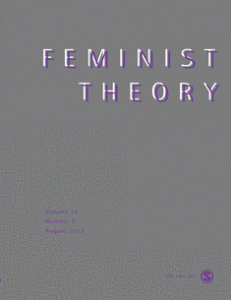 Feminist Theory Vol. 5 No. 3 (December 2004).
Feminist Theory Vol. 5 No. 3 (December 2004).This paper criticises Sawitri Saharso’s argument that hymen repair surgery and sex-selective abortion can be both multiculturalist and feminist policies.
You can read the paper here.
- all posts on culture and religion, all posts on feminism, all posts on liberalism, all posts on social construction, all posts on the body and beauty, articles, beauty, feminism, the body
Are breast implants better than female genital mutilation? Autonomy, gender equality and Nussbaum’s political liberalism
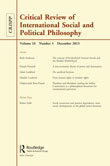 Critical Review of International Social and Political Philosophy (CRISPP) Vol. 7 No. 3 (Autumn 2004).
Critical Review of International Social and Political Philosophy (CRISPP) Vol. 7 No. 3 (Autumn 2004).This paper outlines two forms of autonomy, and argues that political liberals such as Martha Nussbaum wrongly prioritise second-order autonomy. As a result, they cannot provide adequate criticism of unjust social norms. The two cases of breast implants and female genital mutilation are compared to illustrate this point.



